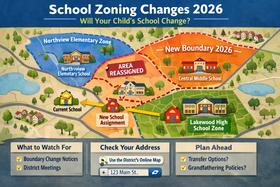The percentage of students achieving proficiency in math was 6% (which was lower than the District Of Columbia state average of 48%). The percentage of students achieving proficiency in reading/language arts was 9% (which was lower than the District Of Columbia state average of 45%).
School Overview
Grades Offered
n/a
Total Students (07-08)
2,386 students
Total Classroom Teachers
n/a
School Rankings
Math Test Scores (% Proficient)
(11-12)6%
48%
Reading/Language Arts Test Scores (% Proficient)
(11-12)9%
45%
Student-Teacher Ratio
n/a
11:1
American Indian
(07-08)n/a
n/a
Asian
(07-08)1%
2%
Hispanic
(07-08)3%
10%
Black
(07-08)86%
83%
White
(07-08)10%
5%
Hawaiian
(07-08)n/a
n/a
Two or more races
(07-08)n/a
n/a
School Statewide Testing
School District Name
Source: National Center for Education Statistics (NCES), DC Dept. of Education
Frequently Asked Questions
What percent of students have achieved state testing proficiency in math and reading?
6% of students have achieved math proficiency (compared to the 48% DC state average), while 9% of students have achieved reading proficiency (compared to the 45% DC state average).
How many students attend Tuition Grant Dcps Non Public?
2,386 students attend Tuition Grant Dcps Non Public.
What is the racial composition of the student body?
86% of Tuition Grant Dcps Non Public students are Black, 10% of students are White, 3% of students are Hispanic, and 1% of students are Asian.
What school district is Tuition Grant Dcps Non Public part of?
Tuition Grant Dcps Non Public is part of District Of Columbia Public Schools.
Recent Articles

Public School Open House & Enrollment Season Guide for Parents
Learn what to ask at a public school open house during enrollment season, from academics to safety, to choose the right school for your child.

School Zoning Changes 2026: How Assignments May Shift
School Zoning Changes 2026 could affect your child’s school assignment. Learn how zoning works, what is changing, and how families can prepare.

School Vouchers: Updated Pros and Cons (2025 Review)
Comprehensive 2025 analysis of school vouchers, weighing benefits and challenges for families, funding, outcomes, and policy directions.





